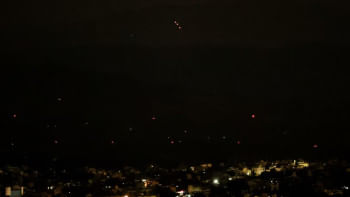Small states' foreign policy formulation: Countering challenges
Small state becomes an important feature of international society in the 21st century when a large number of states of the state centric international system belong to that group. The concept of small state suffers from definitional problem because of their variation in terms of territorial size, population density, market potential, administrative capacities, resource possession and mobilization, as well as degrees of geographical remoteness. David Vital tried to offer a comprehensive definition in his famous book titled The Inequality of States -- a Study of the Small Power in International Relations. He settled the definition via some upper limits: "(a) a population of 10-15 million in the case of economically advanced countries; and (b) a population of 20-30 million in the case of underdeveloped countries." (Vital 1967:8). A study produced by the United Nations Institute forTraining and Research in 1971 quoted the UN Secretary-General's definition from 1966 which defined small states as "entities which are exceptionally small in area, population and human and economic resources." (UNITAR 1971:29) The report concluded that smallness "is a comparative and not an absolute idea." (UNITAR 1971:29)
Small states seem arrested in their foreign policy making and shaping. They prefer, sometimes they are obliged, to live under the shadow of big neighbours who are far ahead of them in each possible power rating scale. However, small states can play an influential role in global politics when they are aligned. "Lilliputians can tie up Gulliver, or make him do their fighting for them."
Small states' foreign policy strategy can be called pilot-fish behaviour -- staying close to the shark to avoid being eaten. This idea was used by Erling Bjol in the 70s when Finland considered itself as a small state and adopted this strategy in its foreign policy. Like pilot fish, small states want to live under the shadow of their big neighbours. But question is how long this strategy serves the aim and interest of those and what is the counter strategy of bigger neighbours. Are those large neighbors enjoy it or exploit it?
In realpolitik every strategy does not have same outcome. In case of Bangladesh, this pilot fish strategy did not work, but in case of Bhutan this strategy succeeded to protect her national interest. Small states generally want to use their geo-strategic position and regional economic compatibility to allure neighbouring or global super power in friendly and cooperative relations.
In today's globalised world, small states play more proactive gamble of socio-economic politics to serve her national interests. They are getting more access in the decision making of the global leadership forums such as WTO, IMF, WHO, FAO, ILO and so on. Radovan Vukadinoviæ of the University of Zagreb finds a link between small status, military and economic weakness, and an aspiration to democratize international relations. Small countries can serve their national interests best when they join a caucus for peace and progress, and to do so in vindication of the principles of the UN. Former Irish Prime Minister Sean Lemass contributed the idea that small states played a crucial role in international organizations by virtue of the fact that voting blocs often needed mediators to soften extreme positions and promote modus vivendi in various resolutions. But it is not an easy matter as big powers always want to exploit those small states via pursuing their political or economical hegemony. In case of South Sudan and East Timor it is visible that how they are constrained by their big neighbours. A containment strategy is also common in the case of Haiti and Kosovo where hegemonic power tries to establish 'zone of privileged interest' to restrain small neighbours from entering alliance, and keep under its unilateral sphere of hegemony.
So it is imperative for small states to uphold customary international laws - including the contentious principles of sovereignty, independence and non-interference. Their most potent instrument is diplomacy amidst a balance of power situation. Scholars like Fox, Lemass, Nicolae and Alan Chong have argued, "Small state's foreign policy apparatus may possess among its human resources, intellectual and propagandistic skills that are disproportionate to its physical size. This can be termed as compensatory informational or symbolic power. It might even be regarded as a leveler between great and small powers, large states and their smaller neighbors." They have good opportunities in playing with 'soft power' and Diaspora also. These Diasporas try to secure the interests of their respective native countries through mobilising sympathetic groups of the big power.

 For all latest news, follow The Daily Star's Google News channel.
For all latest news, follow The Daily Star's Google News channel. 



Comments